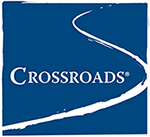Everyone has distinct personality traits that make them who they are and different from everyone else. It is these similarities and differences that attract people to one another and form various types of relationships. However, when an individual is struggling with a personality disorder, it can be more difficult to form relationships due to challenging behaviors and thought patterns. This is why Crossroads has a dual diagnosis treatment center for mental health and addiction recovery. The personality disorder treatment program in Portland, Maine helps clients work through these problems.
 Personality disorders can lead to a narrow view of the world and very rigid thinking. Individuals often have difficulty coping with the unpredictability of life and changing demands. Others may view their thoughts and behaviors as odd, dramatic, erratic, or anxious, but those with personality disorders typically do not recognize that there is anything wrong.
Personality disorders can lead to a narrow view of the world and very rigid thinking. Individuals often have difficulty coping with the unpredictability of life and changing demands. Others may view their thoughts and behaviors as odd, dramatic, erratic, or anxious, but those with personality disorders typically do not recognize that there is anything wrong.
There is no one specific cause of personality disorders. Researchers believe that they develop from a combination of genetics and environment. It is thought that trauma, abuse, or neglect during childhood may be contributing factors and make individuals more susceptible to rigid thinking personality disorders, but there are some people with no negative history who are affected. Rigid thinking personality disorder treatment program can help individuals to recognize there is a problem and work to manage these issues.
Signs and Impact of Personality Disorders
There are many different types of personality disorder diagnosis, so professionals group them into three clusters:
- Cluster A is characterized by odd or eccentric thinking or behavior and includes paranoid personality disorder, schizoid personality disorder, and schizotypal personality disorder
- Cluster B is characterized by dramatic or erratic thinking or behavior and includes narcissistic personality disorder, histrionic personality disorder, and borderline personality disorder
- Cluster C is characterized by anxious or fearful thinking or behavior and includes avoidant personality disorder, dependent personality disorder, and obsessive-compulsive personality disorder
Like many conditions, personality disorders exist along a spectrum. Some people may exhibit more severe symptoms while others are rather mild. In addition, it is not unusual for an individual to show signs of more than one disorder.
One of the more common and widely recognized personality disorder diagnosis is borderline personality disorder. Signs include:
- Trouble forming and maintaining relationships due to intense mood swings
- Impulsive behavior
- Inappropriate or intense feelings of anger
- Feeling of emptiness or loss of sense of self
- Stress-related paranoia
- Fear of abandonment whether real or imagined
These symptoms impact individuals’ ability to function and interact with others on a daily basis. It can be very distressing for those affected as well as those around them.
How are Personality Disorders and Addiction Related?
Challenges related to personality disorder diagnosis can leave individuals more susceptible to co-occurring disorders such as addiction. One might turn to substance use as a way to overcome symptoms and try to maintain a more normal life. Drugs or alcohol may allow them to feel more calm and focused, improve self-esteem and confidence, and be more flexible to change. Some people may also get involved in substance use as a way to try to forget about their problems and the impact of a personality disorder diagnosis on their life.
However, substance use is only a temporary fix and can lead to more serious problems such as addiction. In addition, drugs or alcohol may exacerbate symptoms and make people feel worse instead of better. Fortunately, there are personality disorder treatment programs available as well as co-occurring disorders programs to address mental health and addiction problems.
Co-Occurring Disorders: Personality Disorder and Addiction
According to research by the National Institute of Mental Health (NAMI), approximately nine percent of adults in the United States are affected by personality disorders. Furthermore, 33 percent of respondents who had a personality disorder were also treated for a mental health disorder or substance use.
Mental health plays an integral role in overall health as well as recovery from addiction. It is important for individuals to receive treatment that is tailored to their unique needs, meaning personality disorders or other mental concerns are treated concurrently with substance use disorders. In cases of mental health problems, substance use treatment programs can’t do it alone. Understanding the impact that each has on the other and how to effectively manage symptoms and reduce the risk of relapse is essential. Co-occurring disorders treatment (also known as dual diagnosis treatment) supports clients in working through the personal challenges they face and developing a treatment plan that fits their needs and goals.
Personality Disorder Treatment Program at Crossroads
Crossroads offers a personality disorder treatment program as well as addiction treatment programs through comprehensive co-occurring disorders care. Clients are able to address trauma and work through challenges while developing healthier routines and coping methods. They learn more about the impact of substance use on personality disorders and vice versa and engage in therapeutic activities to promote sobriety and a healthier way of thinking and behaving.
Clients participate in a variety of individual and group therapies as well as holistic healing, educational sessions, and recreational activities. All of these approaches work together to help clients rebuild their lives, manage mental health issues, develop positive relationships, and overcome substance use disorders.
For clients dealing with borderline personality disorder (BPD), Crossroads incorporates an evidence-based practice known as dialectical behavioral therapy (DBT) as one approach in comprehensive treatment. DBT uses the concept of mindfulness and increased awareness to support individuals in better managing intense emotions, stress, mood swings, and interpersonal relations. DBT can also be effective for clients struggling with addiction in addition to borderline personality disorder.
If you or someone you love is struggling with mental health issues and turning to substance use as a way of coping, reach out to Crossroads to find the support and guidance necessary for recovery. There is help available, call 877.978.1667 to be empowered and remember who you want to be. Pursue a brighter future, contact Crossroads today for a personality disorder treatment program in Portland, Maine that fits your situation.

 Personality disorders can lead to a narrow view of the world and very rigid thinking. Individuals often have difficulty coping with the unpredictability of life and changing demands. Others may view their thoughts and behaviors as odd, dramatic, erratic, or anxious, but those with personality disorders typically do not recognize that there is anything wrong.
Personality disorders can lead to a narrow view of the world and very rigid thinking. Individuals often have difficulty coping with the unpredictability of life and changing demands. Others may view their thoughts and behaviors as odd, dramatic, erratic, or anxious, but those with personality disorders typically do not recognize that there is anything wrong.